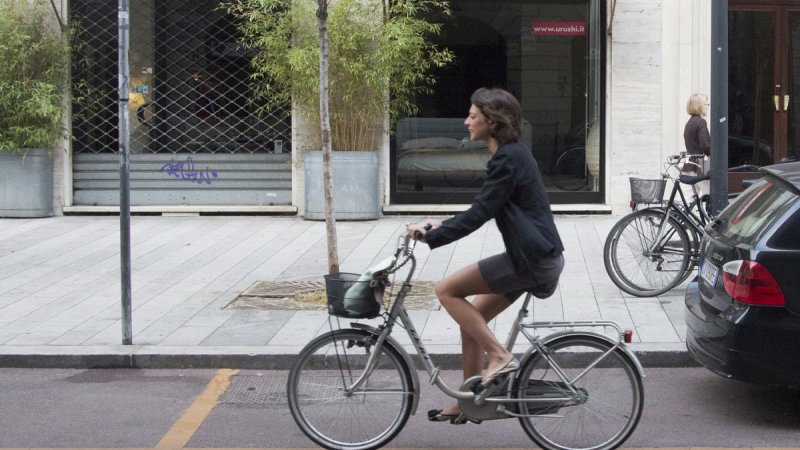In Italy, cities are vying for their share of €35 million (almost $39 million US) that the government has recently announced for sustainable mobility solutions. Milan has been struggling with air quality problems, and has responded by encouraging cycling through initiatives like bikesharing. Now, Milan's mobility councillor Pierfrancesco Maran wants to use some of those government funds to encourage people to eschew their cars by paying them to commute to work by bike.
Following in the footsteps - or, rather, the bike tracks - of similar initiatives in France and the small Italian town of Massarosa, Milan is looking at ways to reimburse people who chose cycling over driving. One challenge involves tracking riders to make sure they're actually biking to work. Also, navigating traffic is difficult in Milan's congestion. Furthermore, the modest sums of cash would likely not be enough incentive to make the difference Milan is looking for. Businesses that offer their employees free parking or company cars, and the hard-set commuting habits people are already used to, are serious impediments to encouraging pedal-powered commuting.
Infrastructure improvements appear to be the best way to get people to bike, and is a valuable addition to any economic incentives. In Copenhagen, for instance, only six percent of people bike to work to save money, and only one percent do it for the sake of the environment. 56 percent, on the other hand, do it because it's the easiest and quickest way to get around. The environmental side of it is an incentive for the politicians in polluted cities, and their job is to find other ways to make it worthwhile for the public. While the challenges in Milan are many, Maran hopes that with a bit of cash, and the help of mobility experts, he can find a way to make his cycling scheme work.
Nouvelles connexes



